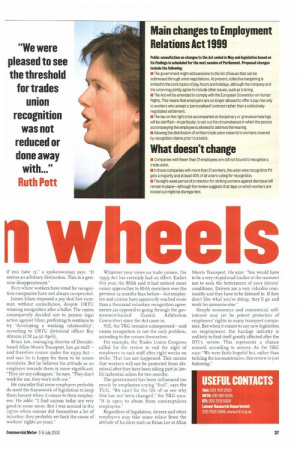Main changes to Employment Relations Act 1999
Page 37

If you've noticed an error in this article please click here to report it so we can fix it.
Public consultation on changes to the hot ended in May and legislation based on Its findings is scheduled for the next session of Parliament. Proposed changes Include the followbg:
• The government might add pensions to the list of issues that can be addressed through union negotiations. At present, collective bargaining is limited to the core topics of pay, hours and holidays, although the company and the union may jointly agree to include other issues, such as training.
• The Act will be amended to comply with the European Convention on Human Rights. This means that employers are no longer allowed to offer a pay rise only to workers who accept a 'personalised' contract rather than a collectivelynegotiated settlement.
• The law on the right to be accompanied at disciplinary or grievance hearings will be clarified—in particular, to set out the circumstances in which the person accompanying the employee is allowed to address the hearing.
• Allowing the distribution of written trade union material to workers covered by recognition claims prior to a ballot.
What doesn't change
• Companies with fewer than 21employees are still not bound to recognise a trade union.
• In those companies with more than 21workers, the union wins recognition if it gets a majority and at least 40% of all voters voting for recognition.
• The eight-week period of protection for striking workers against dismissal will remain in place—although the review suggests that days on which workers are locked out might be disregarded.




































































































































































